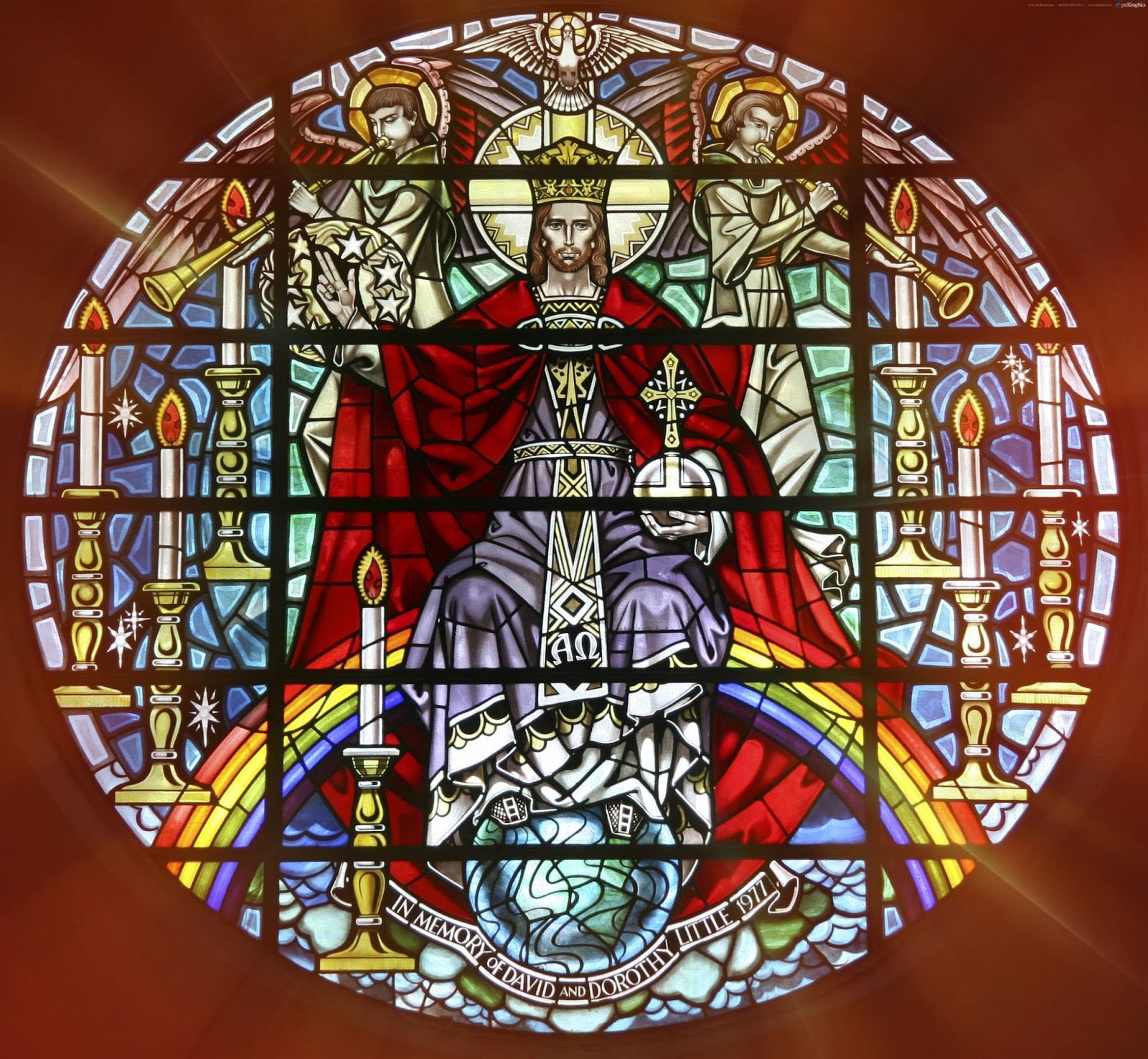Regina Caeli – Queen of Heaven, Rejoice!
The Regina Caeli, Latin for “Queen of Heaven,” is a hymn and prayer ...

Fugentius of Ruspe on Christ as the high priest, the priest forever according to the order of Melchizedek. The priesthood of Jesus is a function of the Incarnation. Note how he examines the teaching implicit in the way we pray in the liturgy – to the Father through Jesus Christ our Lord. This illustrates the principle Lex orandi, Lex credendi – the way we’ve been taught to pray teaches us what to believe.
Notice, at the conclusion of our prayer we never say, “through the Holy Spirit”, but rather, “through Jesus Christ, your Son, our Lord.”
Through the mystery of the Incarnation, Jesus Christ became man, the mediator of God and man. He is a priest for ever according to the order of Melchizedek. By shedding his own blood he entered once and for all into the Holy Places. He did not enter a place made by human hands, a mere type of the true one; but, he entered heaven itself, where he is at God’s right hand interceding for us. Quite correctly, the Church continues to reflect this mystery in her prayer.
This mystery of Jesus Christ the high priest is reflected in the apostle Paul’s statement: Through him, then, let us always offer the sacrifice of praise to God, the fruit of lips that profess belief in his name.
We were once enemies of the Father, but have been reconciled through the death of Christ. Through him then we offer our sacrifice of praise, our prayer to God. He became our offering to the Father, and through him our offering is now acceptable. It is for this reason that Peter the apostle urges us to be built up as living stones into a spiritual house, a holy priesthood to offer spiritual sacrifices pleasing to God through Jesus Christ. This then is the reason why we offer prayer to God our Father, but through Jesus Christ our Lord.
When we speak of Christ’s priesthood, what else do we mean than the incarnation? Through this mystery, the Son of God, though himself ever remaining God, became a priest. To him along with the Father, we offer our sacrifice. Yet, through him the sacrifice we now offer is holy, living and pleasing to God.
Indeed, if Christ had not sacrificed himself for us, we could not offer any sacrifice. For it is in him that our human nature becomes a redemptive offering. When we offer our prayers through him, our priest, we confess that Christ truly possesses the flesh of our race. Clearly the Apostle refers to this when he says: Every high priest is taken from among men. He is appointed to act on behalf of these same men in their relationship to God; he is to offer gifts and sacrifices to God.
We do not, however, only say “your Son” when we conclude our prayer. We also say, “who lives and reigns with you in the unity of the Holy Spirit”. In this way we commemorate the natural unity of the Father, Son and Holy Spirit. It is clear, then, that the Christ who exercises a priestly role on our behalf is the same Christ who enjoys a natural unity and equality with the Father and the Holy Spirit.
This excerpt from a letter by Fulgentius of Ruspe (Epist. 14, 36-37: CCL 92, 429-431) is used in the Roman Office of Readings for Thursday in the second (2nd) week in Ordinary Time. The accompanying biblical reading is from Deut. 10:12-11:9, 26-28. St. Fulgentius of Ruspe was a bishop from North Africa who lived during the 6th century. In his constant battle against the Arian heresy which denied the divinity of Christ, he found inspiration in an earlier North African bishop, St. Augustine of Hippo.
This excerpt illustrates how, for the Fathers of the Church, the doctrine or teaching of the Church is implicit in the way we’ve been taught to pray, as seen in the prayers of the Liturgy (lex orandi, lex credendi). For more great resources on the Liturgy, see the LITURGY section of the Crossroads Initiative Library.
No Comments